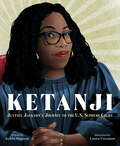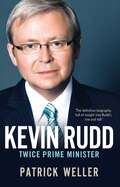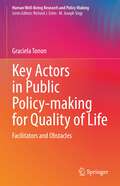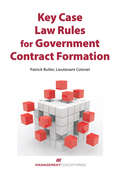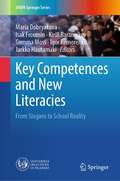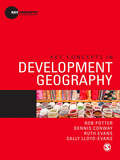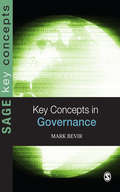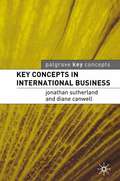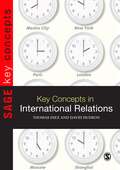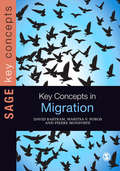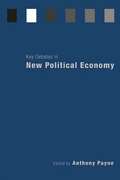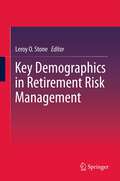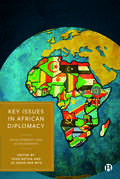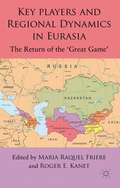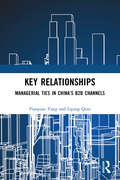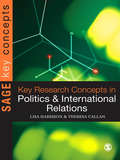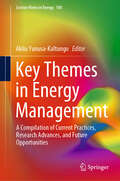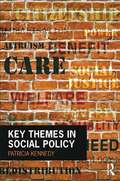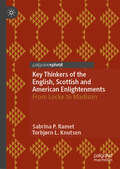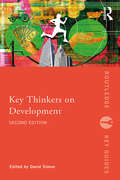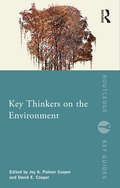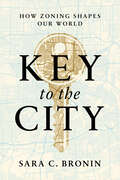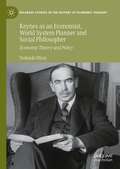- Table View
- List View
Ketanji: Justice Jackson's Journey to the U.S. Supreme Court
by Kekla MagoonFrom two Coretta Scott King Honor winners comes this uplifting picture book biography about Ketanji Brown Jackson, who is making history as the first Black woman to serve as a Supreme Court Justice.Ketanji Brown Jackson is no stranger to overcoming obstacles. When a high school guidance counselor told her she should set her sights lower than Harvard, she decided to go to Harvard for college and law school.When she became a public defender and saw inequalities in the justice system, she used her legal skills to advocate for people who needed help, but couldn’t afford an attorney.Ketanji’s path to the Supreme Court was unique: She’s the only current Justice to have been a public defender and one of a few who went to public school. Her story is powerful and heartening, and it’s a lesson in overcoming adversity by being true to yourself.Margaret A. Edwards Award winner, Printz Honor winner, and National Book Award finalist Kekla Magoon and Coretta Scott King honoree Laura Freeman reunite to present a generation of readers with a new inspirational figure.
Kevin Rudd: Twice Prime Minister
by Patrick WellerIt was a very different Kevin Rudd who returned to office in 2013. Kevin 07 was a fresh face and a new image: the convivial, Mandarin-speaking nerd who seemed so different from past leaders and who held so much potential. By 2013 Rudd retained some of his popularity but none of his novelty. The Opposition could say nothing derogatory about him that his colleagues had not already said. A series of policy grenades had to be defused. His second term was to be short, brutal and nasty. Yet, despite his defeat, Kevin Rudd was an unusual Labor leader and prime minister. Political scientist and biographer Patrick Weller spent several years observing and talking to Rudd and the people around him to explain how one person came to the job and sought to meet its demands. Weller takes us back to Rudd's boyhood in Nambour, son of a poor Queensland dairy farmer; to a member without a faction who led a bitterly factionalised party; to the only federal Labor leader to win a majority since Paul Keating in 1993; and to only the second prime minister since 1914 to be sworn in for a second time. This book has the advantage of interviews in 2008 and 2009 with ministers who were then supporters but who became diehard enemies. Weller also had the benefit of unique access to the Prime Minister's Office. His biography is a revealing account of the man who became prime minister - twice.
Key Actors in Public Policy-making for Quality of Life: Facilitators and Obstacles (Human Well-Being Research and Policy Making)
by Graciela TononThis book analyzes how quality of life research results can be transferred to policy making, and considers the role of actors in this process---researchers, policy makers, and citizens---as well as their interrelationships. This book points to the need to include actors other than the state in public policy-making related to quality of life and well-being issues, in defining problems and formulating alternatives. It identifies obstacles and facilitators in the process and offers a review of different types of aid that affect well-being and quality of life. Finally, it shows possible pathways for various stakeholders in policy-making to interact with one another in the building of good societies.
Key Case Law Rules for Government Contract Formation
by Patrick Butler Lt. ColGo Beyond the FAR!The guidance contained in the almost 2000 pages of the Federal Acquisition Regulation and the various agency supplements are just a part of the resources government acquisition professionals need to do their jobs effectively. Accessing and understanding case law is equally important to a thorough understanding of government contracting. Legal decisions explain the Government Accountability Office's and the courts' views on how procurement statutes and regulations apply in a wide range of situations. Case law also gives potential bid protesters and agencies a way to gauge the likely outcome of a protest.Until now, it has been difficult to find and understand the legal decisions that could be relevant to a particular situation. Key Case Law Rules for Government Contract Formation changes that by organizing and explaining the most important protest grounds in a readily accessible and comprehensible way. With an emphasis on more recent cases, the book is organized around the key protest grounds, such as pricing issues, allegations that the government wrongfully prevented competition, or improper sealed-bidding procedures.Bridging the gap of understanding between the legal and the contracting communities, this book is a much-needed addition to the essential resources for acquisition professionals.
Key Competences and New Literacies: From Slogans to School Reality (UNIPA Springer Series)
by Maria Dobryakova Isak Froumin Gemma Moss Kirill Barannikov Igor Remorenko Jarkko HautamäkiThis edited book is a unique comprehensive discussion of 21st century skills in education in a comparative perspective. It presents investigation on how eight very different countries (China, Canada, England, Finland, Poland, South Korea, the USA and Russia) have attempted to integrate key competences and new literacies into their curricula and balance them with the acquisition of disciplinary knowledge. Bringing together psychological, sociological, pedagogical approaches, the book also explores theoretical underpinnings of 21st century skills and offers a scalable solution to align multiple competency and literacy frameworks. The book provides a conceptual framework for curriculum reform and transformation of school practice designed to ensure that every school graduate thrives in our technologically and culturally changing world. By providing eight empirical portraits of competence-driven curriculum reform, this book is great resource to educational researchers and policy makers.
Key Concepts in Development Geography (Key Concepts in Human Geography)
by Ruth Evans Sally Lloyd-Evans Rob Potter Dennis Conway"An excellent and supremely accessible guide to some key issues in development geography" - Stuart Corbridge, London School of Economics "Provides a clearly stated, informed and strongly structured pathway through the key literatures and debates" - Jonathan Rigg, Durham University Organized around 24 short essays, Key Concepts in Development Geography is an introductory text that provides students with the core concepts that form contemporary research and ideas within the development geography discipline. Written in a clear and transparent style, the book includes: an introductory chapter providing a succinct overview of the recent developments in the field over 24 key concept entries that provide comprehensive definitions, explanations and evolutions of the subject excellent pedagogy to enhance students' understanding including a glossary, figures, diagrams, and further reading. Organized around five of the most important areas of concern, the book covers: the meanings and measurement of development; its theory and practice; work, employment and development; people, culture and development; and contemporary issues in development. The perfect companion for undergraduate and postgraduate students on geography degrees, the book is a timely look at the pressingly important field of international development studies today.
Key Concepts in Governance (SAGE Key Concepts series)
by Mark Bevir'A comprehensive, multidisciplinary examination of the concepts embodied in governance and their wide-ranging applications and implications. An important read and reference for students and academics in the social sciences, particularly those engaged in public policy studies' - Professor Carolyn J. Heinrich, University of Wisconsin-Madison 'An authoritative short survey for which students and teachers alike will be profoundly grateful' - Professor Rod Rhodes, University of Tasmania and Australian National University 'Students of governance will welcome this book given the explosion of literature in the field. It provides a quick guide to key concepts and ideas but does so with considerable originality. We are offered not just a review of well-established positions but a distinctive take on the governance debate' - Gerry Stoker, Professor of Governance, University of Southampton The language of governance has risen to prominence in the last 20 years as a way of describing and explaining changes in the nature and role of the state, but the concepts involved can be confusing as they are often new and come from diverse disciplinary and theoretical settings. Key Concepts in Governance provides a clear introduction to the technical concepts and policies of contemporary governance through short definitional essays. Each entry features: " a snapshot definition of the concept " a contextualization of the concept " an overview of relevant debates " a guide to further reading. The book also includes a substantial introductory chapter which gives an overview of governance studies as a whole, orientating and guiding the reader around the issues that the concepts address. Highly readable, with clear cross-referencing, this is an ideal book for students on introductory courses and an indispensable resource for anyone interested in governance.
Key Concepts in International Business
by Diane Canwell Jonathan SutherlandKey Concepts in International Business is one of a range of comprehensive glossaries with entries arranged alphabetically for easy reference. All major concepts, terms, theories and theorists are incorporated and cross-referenced. Additional reading and Internet research opportunities are identified. More complex terminology is made clearer with numerous diagrams and illustrations. With over 500 key terms defined, the book represents a comprehensive must-have reference for anyone studying a business-related course or those simply wishing to understand what international business is all about. It will be especially useful as a revision aid.
Key Concepts in International Relations (SAGE Key Concepts series)
by Thomas Diez Ingvild Bode Aleksandra Fernandes Da CostaInternational relations is a vibrant field of significant growth and change. This book guides students through the complexities of the major theories of international relations and the debates that surround them, the core theoretical concepts, and the key contemporary issues. Introduced by an overview of the discipline's development and general structure, the more than 40 entries are broken down as follows: Parts two introduces the key theories and each chapter includes: " A broad overview " a discussion of methodologies " a review of empricial applications " a guide to further reading and useful websites Part three discusses the major concepts and for each concept provides: " An introduction to the core questions " An overview of the definitions and theoretical perspectives " A review of empirical problems " Links to other entries, further reading and useful websites Clear and highly readable, Key Concepts in International Relations is an essential guide for students on politics and international relations courses.
Key Concepts in Migration (SAGE Key Concepts series)
by David Bartram Pierre Monforte Maritsa Poros"Demonstrates that the study of international migration has really come of age. From acculturation to undocumented immigration, the authors consider more than three dozen concepts at the heart of migration studies. Clearly written in a highly readable style, the book is a valuable resource for students and scholars alike." - Nancy Foner, City University of New York "This very useful and authoritative compendium explicates thirty-eight concepts central to analysis of international migration. It is accessible to undergraduate students and even can enrich graduate courses. It nicely complements books like The Age of Migration or Exceptional People. Concision is a virtue!" - Mark J. Miller, University of Delaware This book provides lucid and intuitive explanations of the most important migration concepts as used in classrooms, among policymakers, and in popular and academic discourse. Arguing that there is a clear need for a better public understanding of migration, it sets out to clarify the field by exploring relevant concepts in a direct and engaging way. Each concept: Includes an easy to understand definition Provides real-world examples Gives suggestions for further reading Is carefully cross-referenced to other related concepts It is an ideal resource for undergraduate and post-graduate students studying migration in sociology, politics, development and throughout the social sciences, as well as scholars in the field and practitioners in governmental and non-governmental organizations.
Key Debates in New Political Economy
by Anthony PayneA concise and highly informative overview of the major intellectual debates within the field of political economy over the last decade. Each chapter provides a review of a key area written by a distinguished expert in the field. A comprehensive introduction locates these debates within the wider intellectual and political context which gave rise to them and provides some pointers to the future directions of political economy. Key areas covered include: models of capitalism globalization the environment gender territory and space regionalism development. This is essential reading for all students of political economy from distinguished contributors including: Anthony Payne, Colin Crouch, James Meadowcroft, V. Spike Peterson, Saskia Sassen, Björn Hettne and Adrian Leftwich.
Key Demographics in Retirement Risk Management
by Leroy O StoneKey Demographics in Retirement Risk Management argues that the weakening of public and employer-sponsored social safety nets in several countries will permanently increase pre-retirees' risk-anxiety and create pressure towards readjustment of their expectations about the quality of their lives in retirement. The result will be to raise the priority of achieving effective comprehensive retirement related risk management. This achievement requires an emphasis upon the cascading of linked risks, and careful attention to the optimization of scarce resources used to manage those linked risks. Professional financial and retirement planning advisors comprise a key source of help. This book develops new knowledge concerning the factors that help to explain three important aspects of access to these professional advisors. The results of this analysis are used to illustrate the process of identifying distinctive population segments, key demographics, on the basis of multiple population attributes treated simultaneously. The illustration is further extended with an identification of distinctive population segments relative to performance on a composite indicator of the conduct of multiple retirement risk management activities. The book also discusses implications of the pattern of gender differences in preparedness to address retirement's challenges, highlighting subgroups of women in which inadequate preparedness is pronounced.
Key Issues in African Diplomacy: Developments and Achievements
by Sven Botha and Jo-Ansie van WykAfrica’s unique position as an international diplomatic actor has not always been given the attention it deserves. This volume bridges this gap by offering a fresh, comprehensive and realistic overview of African diplomacy. The book examines African diplomatic practice. Chapters explore how different types of diplomacy have developed over time, including energy diplomacy, economic diplomacy and quiet diplomacy. Crucially, the book assesses how certain events have allowed Africa to use certain types of diplomacy to yield better outcomes for itself. Including contributions from an international team of scholars, policy makers and experts from the diplomatic world, the book provides a comprehensive guide to African diplomacy and challenges the current dominant usage of Northern perspectives on diplomacy studies.
Key Players and Regional Dynamics in Eurasia
by Maria Raquel Freire Roger E. KanetExplores Russia's re-emergence as a major actor in Central Asia and the Caucasus - a re-emergence which is limited by the involvement and influence of external state and non-state actors, including China, the USA and foreign energy companies.
Key Relationships: Managerial Ties in China’s B2B Channels
by Pianpian Yang Liping QianThis book explores the governance and ramifications of managerial ties in China’s B2B contexts, with the aim of uncovering theoretical mechanisms and practical strategies for effective management of these relationships.In this book, managerial ties refer to personal relationships between corporate executives, business partners, and government or regulatory officials. While common in the Chinese business environment, these relationships are gaining recognition and value globally. Drawing on insights from four empirical studies, the authors focus on managerial ties within channel relationships among Chinese firms. The book analyzes how business and political ties affect channel outcomes, highlights the limitations of managerial ties in emerging markets, and identifies conditions or mechanisms that may lead to negative effects.This work will be valuable to researchers and students of business management and relationship marketing, as well as to business professionals interested in Chinese business practices and multinational companies operating in China.
Key Research Concepts in Politics and International Relations
by Lisa Harrison Theresa CallanFrom action research to validity, this innovative and informative text is an invaluable guide to a variety of core research concepts in both political science and international relations. Key Features: - Each entry is consistently structured, providing: a clear definition, a focused explanation, a summary of current debates and areas of research, further reading, and references to other related concepts. - Explains how and why particular research methods are used and highlights alternative research concepts and strategies. - Cross-relates entries, enabling you to dip in to topics and follow threads throughout the book. - Packed with illuminating examples to help you to apply theory to the ′real world′ of political analysis. An essential companion for students of Politics and International Relations at both undergraduate and postgraduate levels.
Key Themes in Ancient History: Politics in the Roman Republic
by Henrik MouritsenThe politics of the Roman Republic has in recent decades been the subject of intense debate, covering issues such as the degree of democracy and popular influence, 'parties' and ideology, politics as public ritual, and the character of Rome's political culture. This engaging book examines all these issues afresh, and presents an original synthesis of Rome's political institutions and practices. It begins by explaining the development of the Roman constitution over time before turning to the practical functioning of the Republic, focusing particularly on the role of the populus Romanus and the way its powers were expressed in the popular assemblies. Henrik Mouritsen concludes by exploring continuity and change in Roman politics as well as the process by which the republican system was eventually replaced by monarchy. This original and readable book will be important for all students and scholars of Roman history and of politics in general.
Key Themes in Energy Management: A Compilation of Current Practices, Research Advances, and Future Opportunities (Lecture Notes in Energy #100)
by Akilu Yunusa-KaltungoThis book provides a comprehensive global coverage of energy management as it relates mostly to developing countries. In an era of unprecedented global population growth, the demand for energy has reached staggering levels. The United Nations reported an enormous 200% increase in population between 1950 and 2020, with projections indicating a further rise to 10.9 billion by 2100. As a direct consequence, global primary energy usage has surged from 3701 Mtoe in 1965 to 13511 Mtoe in 2017, putting immense strain on existing energy sources. If current growth rates persist, these sources could be depleted within a mere 130 years. To address this impending crisis, governments worldwide have implemented regulations and incentives to promote energy conservation. While numerous studies and publications have emerged within the field of energy management, there remains a significant research gap, particularly concerning the energy challenges faced by developing countries. Existing edited books on energy-related topics often narrowly focus on specific aspects, hindering readers from gaining a holistic understanding of energy management challenges and potential solutions. This book fills this void. Recognizing the pivotal role these nations play in achieving sustainable development goals, this book provides a wide-ranging perspective on the trends, challenges, and potential solutions to energy crises in these regions. It not only acknowledges the challenges faced by developing countries but also offers viable strategies to address them. The editor, leveraging his successful leadership experience in global academic endeavors, including publishing a book on Occupational Safety & Health practices during the COVID-19 era and coordination of multinational research projects, is well positioned to bring together exceptional chapters from various countries. His extensive network ensures the inclusion of diverse perspectives, enriching the book's content and offering invaluable insights to readers. Designed for a broad readership, including energy industry organizations, professionals, researchers, government bodies, policymakers, and students, this book delves into a wide array of energy management issues. By facilitating a comprehensive understanding of the subject, it equips readers with the knowledge and tools necessary to navigate the complex landscape of energy management in the modern world.
Key Themes in Social Policy
by Patricia KennedyKey Themes in Social Policy provides an accessible and authoritative introduction to the key concepts used in social policy, from autonomy to wellbeing. With over 100 ideas discussed, this is a comprehensive student guide and is designed to help readers to gain a deeper understanding of major debates and issues. Each entry: explains the origin of the word discusses its relationship to the social sciences describes its relevance to social policy and how widespread its use is outlines some of the key thinkers and research on the topic and gives suggestions for further reading. Making it easy to understand and use the most important ideas in the area, this is an essential companion for all students taking social policy courses.
Key Thinkers of the English, Scottish and American Enlightenments: From Locke to Madison
by Sabrina P. Ramet Torbjørn L. KnutsenThis book summarizes and explains the way in which political thinkers in England, Scotland, and North America reshaped Western thinking about government and citizens. Although the ideas of the Anglo-American Enlightenment can be traced back, in embryo, to the Italian Renaissance and the Protestant Reformation, it was responses to wars – the Thirty Years’ War (1618-1648) and the English Civil War (1642-1651) which were fought above all over religion – that defined it. Algernon Sidney demanded an end to royal absolutism. John Locke called for a government based on religious toleration. Benedictus de Spinoza, Samuel von Pufendorf and others elaborated on the ideas that society was composed of sovereign individuals endowed with reason and rights. Building on the works of these thinkers, Scottish philosophers including David Hume and Adam Smith, and American revolutionaries including Thomas Jefferson and James Madison advanced arguments defending human reason, individual freedom, including religious freedom, and democracy.
Key Thinkers on Development (Routledge Key Guides)
by David SimonSince its publication in 2006 as Fifty Key Thinkers on Development, this invaluable reference has established itself as the leading biographical handbook in its field, providing a concise and accessible introduction to the lives and key contributions of development thinkers from across the ideological and disciplinary spectrum. This substantially expanded and fully updated second edition in the relaunched series without the numerical constraint includes an additional 24 essays, filling in many gaps in the original selection, greatly improving the gender balance and diversifying coverage to reflect the evolving landscape of development in theory, policy and practice. It presents a unique guide to the lives, ideas and practices of leading contributors to the contested terrain of development studies and development policy and practice. Its thoughtful essays reflect the diversity of development in theory, policy and practice across time, space, disciplines and communities of practice. Accordingly, it challenges Western-centrism, Orientalism and the like, while also demonstrating the enduring appeal of "development" in different guises. David Simon has assembled a highly authoritative team of contributors from different backgrounds, regional settings and disciplines to reflect on the lives and contributions of leading authorities on development from around the world. These include: Modernisers like Kindleberger, Perroux and Rostow Dependencistas such as Frank, Furtado, Cardoso and Amin Progressives and critical modernists like Hirschman, Prebisch, Helleiner Sen, Streeten and Wang Political leaders enunciating radical alternative visions of development, such as Mao, Nkrumah and Nyerere Progenitors of religiously or spiritually inspired development, such as Gandhi, Ariyaratne and Vivekananda Development–environment thinkers like Agarwal, Blaikie, Brookfield, Ostrom and Sachs International institution builders like Singer, Hammarsköld, Kaul and Ul Haq Anti- and post-development thinkers and activists like Escobar, Ghosh, Quijano and Roy Key Thinkers on Development is therefore the essential handbook on the world’s most influential development thinkers and an invaluable guide for students of development and sustainability, policy-makers and practitioners seeking an accessible overview of this diverse field and its leading voices.
Key Thinkers on the Environment (Routledge Key Guides)
by David E. Cooper Joy A. Palmer CooperKey Thinkers on the Environment is a unique guide to environmental thinking through the ages. Joy A. Palmer Cooper and David E. Cooper, themselves distinguished authors on environmental matters, have assembled a team of expert contributors to summarize and analyse the thinking of diverse and stimulating figures from around the world and from ancient times to the present day. Among those included are: philosophers such as Rousseau, Kant, Spinoza and Heidegger activists such as Chico Mendes and Wangari Maathai literary giants such as Virgil, Goethe and Wordsworth major religious and spiritual figures such as Buddha and St Francis of Assissi eminent scientists such as Darwin, Lovelock and E.O. Wilson. Lucid, scholarly and informative, the essays contained within this volume offer a fascinating overview of humankind’s view and understanding of the natural world.
Key Topics in Sociology: The Political Sociology of Human Rights
by Kate NashThe language of human rights is the most prominent 'people-centred' language of global justice today. This textbook looks at how human rights are constructed at local, national, international and transnational levels and considers commonalities and differences around the world. Through discussions of key debates in the interdisciplinary study of human rights, the book develops its themes by considering examples of human rights advocacy in international organisations, national states and local grassroots movements. Case studies relating to specific organisations and institutions illustrate how human rights are being used to address structural injustices: imperialist geopolitics, authoritarianism and corruption, inequalities created by 'freeing' markets, dangers faced by transnational migrants as a result of the securitization of borders, and violence against women.
Key to the City: How Zoning Shapes Our World
by Sara C. BroninAn eye-opening exploration of one of the little-known levers that controls our world—zoning codes—and a call-to-arms for using them to improve American society at every level. Zoning codes dictate how and where we can build housing, factories, restaurants, and parks. They limit how tall buildings can be and where trees can be planted. They have become the most significant regulatory power of local government, ultimately determining how we experience our cities. Yet zoning remains invisible. In Key to the City, legal scholar and architect Sara C. Bronin examines how zoning became such a prevailing force and reveals its impact—and its potential for good. Outdated zoning codes have maintained racial segregation, prioritized cars over people, and enabled great ecological harm. But, as Bronin argues, once we recognize the power of zoning, we can harness it to create the communities we desire, and deserve. Drawing on her own experience leading the overhaul of Hartford’s zoning code and exploring the efforts of activists and city planners across the country, Bronin shows how new codes are reshaping our cities—from Baltimore to Chicago, Las Vegas to Minneapolis, and beyond. In Boston, a law fought for by a passionate group of organizers, farmers, and beekeepers is transforming the city into a haven for urban farming. In Tucson, zoning codes are mitigating the impacts of climate change and drought-proofing neighborhoods in peril. In Delray Beach, Florida, a new code aims to capture and maintain the town’s colorful spirit through its architecture. With clarity and insight, Bronin demystifies the power of an inscrutable organizing force in our lives and invites us to see zoning as a revolutionary vehicle for change. In Key to the City, she puts forward a practical and energizing vision for how we can reimagine our communities.
Keynes as an Economist, World System Planner and Social Philosopher: Economic Theory and Policy (Palgrave Studies in the History of Economic Thought)
by Toshiaki HiraiThis book provides an insightful and original perspective on the work and legacy of John Maynard Keynes. It explores his work as an economist, world system planner, and social philosopher to highlight the different ways he influenced economics, economic policy, and the global political economy. Particularly attention is given to the development of the ideas which led up to The General Theory, his role as a planner and negotiator within international organizations, his work on the development of the post-war UK system, his debates with British Economists. This book examines the work and international legacy of one of economics’ defining thinkers. It will be of interest to students and researchers interested in the political economy and the history of economic thought.
